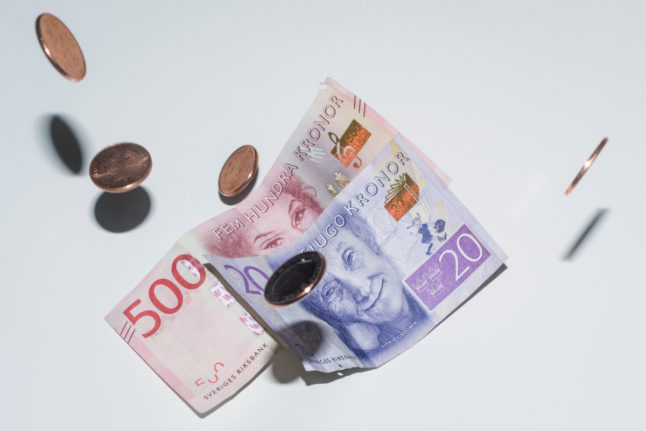Time to file your Swedish taxes
Anyone who lived in Sweden over the whole of 2023 and earned at least 22,208 kronor needs to declare their income tax.
Your tax declaration will become available online from March 4th-8th. If you set up a digital mailbox before March 3rd, you will receive it as a PDF to your digital mailbox. Alternatively, you can log into your “my pages” account via the Tax Agency’s website and view it there.
The good news is that for most people, declaring your taxes is a relatively simple exercise (factors that may make it more complicated are for example if you’re a freelancer, if you sold a house last year, or if you need to make any deductions). If you don’t need to make any changes to the form that’s been filled out for you by the Tax Agency, it’s just a matter of logging in to approve and submit it.
If you don’t have a digital mailbox and you don’t want to log in online, you’ll have to wait for the paper version of your tax declaration to arrive. It will be sent out at some point between March 15th and April 15th.
You can submit your tax declaration from March 19th. The deadline is May 2nd.
Stay tuned for our What Changes in April to find out when you get your tax rebate.
Sweden joins Nato (maybe)
The Hungarian parliament voted to ratify Sweden’s Nato application on February 26th, bringing Sweden one step closer to joining the military alliance almost two years after it first applied to join.
There are still a few steps left before Sweden is officially a member. First, the speaker of the Hungarian parliament, the country’s president has to sign the decision. Unfortunately for Sweden, Hungary is currently in the process of appointing a new president, which has delayed this step.
After that, it has to be flown to Washington DC and be handed over to the US State Department.
All that then remains is for Nato secretary-general Jens Stoltenberg to invite Sweden to present its accession document to the US. This could be done by a Swedish representative in Washington, or by handing over the document at a ceremony in Brussels, which Finland did.
After that, the flag of Sweden will be hoisted at the Nato headquarters, and the country will officially be a Nato member.
There’s not yet a date set for when this formal ceremony will be held, but it could happen in March.
Covid vaccine no longer free for everyone in Sweden
From March 1st, Swedish regions no longer have to offer the Covid vaccine for free to everyone.
The Covid vaccine has so far been free for the public in Sweden regardless of health status, but SKR, the umbrella organisation for local authorities, now recommends that it only be given for free to people who are covered by the Public Health Agency’s recommendations.
The Public Health Agency recommends that people aged over 80 be given one dose of the Covid vaccine in spring 2024, as well as people aged 65-79 who live in care homes for elderly people or receive daily home care. People aged 65-79 who don’t receive home care, and other medical risk groups, are recommended one dose of the vaccine a year, ahead of the autumn/winter season, but not in spring.
The agency also advises that in some cases, people with immunodeficiency disorders may need to follow the same vaccine schedule as over-80s, but there’s no general recommendations and the final decision should be made by their doctor.
Sweden expected to bring in stop-and-search zones
Sweden’s government is expected to soon bring in its controversial stop-and-search zones, with police then empowered to carry out bodily searches for drugs and weapons without a concrete suspicion.
If the proposal goes according to plan, then from March 28th, police in Sweden will be able to temporarily declare any area one of its so-called “security zones”, säkerhetszoner, if there is a tangible risk of shootings or attacks with explosives as a result of gang conflicts.
The measure is divisive, with municipal local governments in Malmö and Stockholm criticising the measure as likely to lead to stigmatisation and ethnic profiling.
Sweden’s Council on Legislation, the parliamentary committee that scrutinises draft bills to ensure they are in line with the constitution, has given its green light, but commented that the fast-tracking of the bill means that relevant organisations do not have enough time to comment, and that the rules on stop-and-search zones should be given a time limit in order to evaluate them after they’ve been implemented.
The Council on Legislation’s recommendations are not binding.
Clocks go forward
Daylight saving time starts in Sweden right at the end of the month, so the clocks will go forward at 2am on the 31st, meaning an hour less in bed.
Many digital clocks (like the one on your phone) change automatically, but it’s a good idea to make sure you’re working to the same time as everyone else before your alarm goes off for work on Monday morning.



 Please whitelist us to continue reading.
Please whitelist us to continue reading.
Member comments